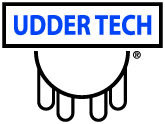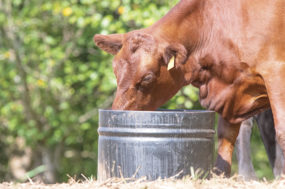Last year, it reported pre-tax earnings before significant items of $40 million. In 2009, AACO recorded a loss of $53.7 million.
One of the world’s leading beef producers with more than 570,000 head of cattle on 18 stations, AACO covers 16.5 million acres of land in Queensland and the Northern Territory.
The company is transforming itself from a pastoral company to an “integrated beef producer and processor.”
The beef sector had been viewed as topping out several years ago. But conditions have improved, with AACO highlighting in marketing material sent to potential investors, factors such as global food scarcity and rising global demand for protein.
Growing populations and incomes are driving increased consumption in developing countries, while a global food shortage has seen the price rise for a wide range of produce, including beef and grain.
Demand has been rising in particular from Asian countries, and currency moves are also boosting the sector.
Increased rainfall in Northern Australia has produced more feed and, as a result, better-quality stock for market.
The size of the trading herd jumped 30 percent last year and a significant jump in the total tonnage produced.
AACO plans to raise about $56.3 million in a placement to institutional shareholders at $1.42 a share, and as much as $30 million in a share purchase plan.
Brazil
The Brazilian Ministry of Agriculture (MAPA) has published a new directive that establishes the rules for the implementation of an electronic Animal Transit Guide (e-GTA).
The GTA is an official and obligatory document for the transport of cattle and other animal species within Brazil.
It contains information regarding the origin and destination of cattle, sex, reason for transport, along with other data. Each species has specific guidelines for GTA issuance according to sanitary requirements.
The new e-GTA will be released by a MAPA information system, which will send the data to the Central Database (Unica) within 24 hours after issuance, where information on cattle movements may be retrieved and checked for authenticity.
The previous paper version of the GTA will continue to be used in areas where the implementation of the new e-GTA is not feasible. In these cases, the information will be sent to the local state database and then transferred to Unica.
Japan
Market reports after Golden Week (series of holidays in late April/early May) reflected the post-quake trend in the Japanese market.
The Kansai (west Japan) region, where consumer sentiment had not been impacted by the March earthquake, seemed to have had more lively demand for tourism and dining out, while the mood among Kanto (Tokyo and surrounding prefectures) consumers was still relatively subdued.
Yet, demand for eating out appears to be slowly recovering, starting from the fast food and some casual/mid-level dining sectors.
McDonalds Japan reported this week that store sales in April grew 3.6 percent on last year. A yakiniku (Japanese/Korean style barbecue) chain, Gyukaku, increased sales, customer numbers and expenditure per customer year-on-year during Golden Week.
While the interest from Japanese buyers has increased gradually for Australian beef since the end of last week, buyers remained very price- sensitive, given the uncertainties of the market and the high Australian dollar.
United Kingdom
Farming leaders have expressed concern after the UK’s biggest supermarket announced it is to begin importing meat from the United States.
Tesco announced that it will begin stocking American beef in some of its stores in the next few months.
A spokesman for the supermarket chain told the Yorkshire Post that Tesco had no intention to stock vast quantities of meat from the U.S. and that the product would account for less than 0.1 percent of its fresh beef offer.
“This is a premium product available in a very small number of stores,” he said. “Tesco is proud to be the biggest customer of British agriculture.” The rest of Tesco’s fresh beef is British and Irish, he added.
However, the move prompted concern from the National Farmers’ Union livestock chairman, Alistair Mackintosh, who said, “Supermarkets should show their support for the British beef industry by ensuring they do all they can to source British beef for their shelves.”
The UK beef industry has gone through a difficult number of years – with beef price recently barely breaking through breakeven for some producers but still falling somewhat short of covering the costs of production for most farmers.
“It is therefore disappointing that some retailers feel the need to undermine producer confidence by sourcing foreign beef,” said Mackintosh.
“A greater commitment from retailers to stock as much British beef as possible would send out the correct message to farmers to invest in production and ensure the future viability of the industry.” ![]()
Clint Peck is the owner of Global Beef Systems LLC. Reach him at cpeck_99@yahoo.com






